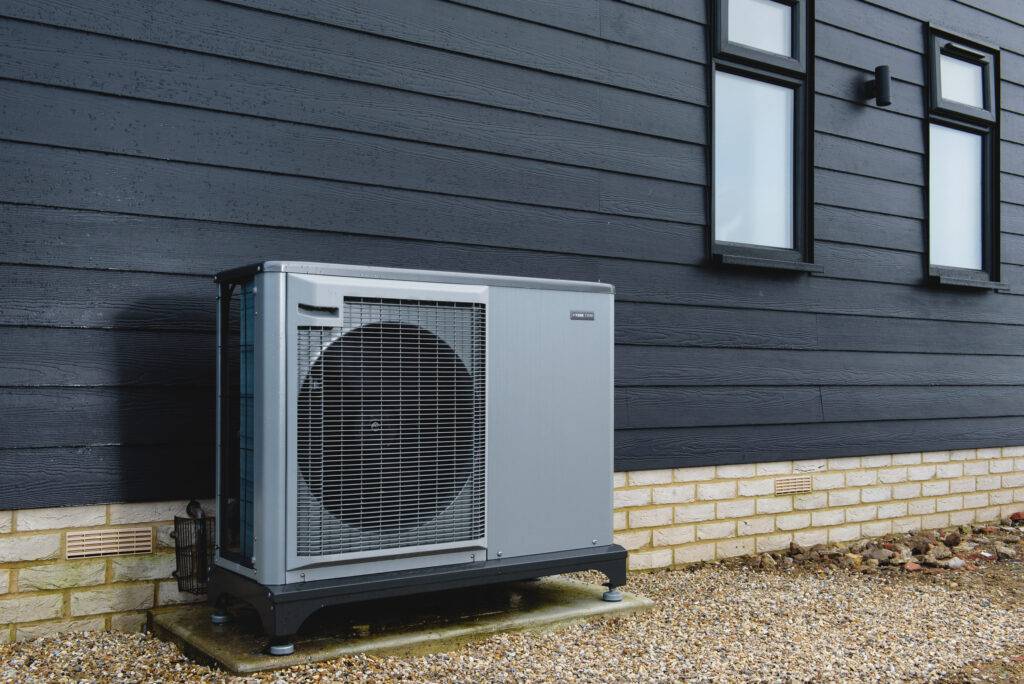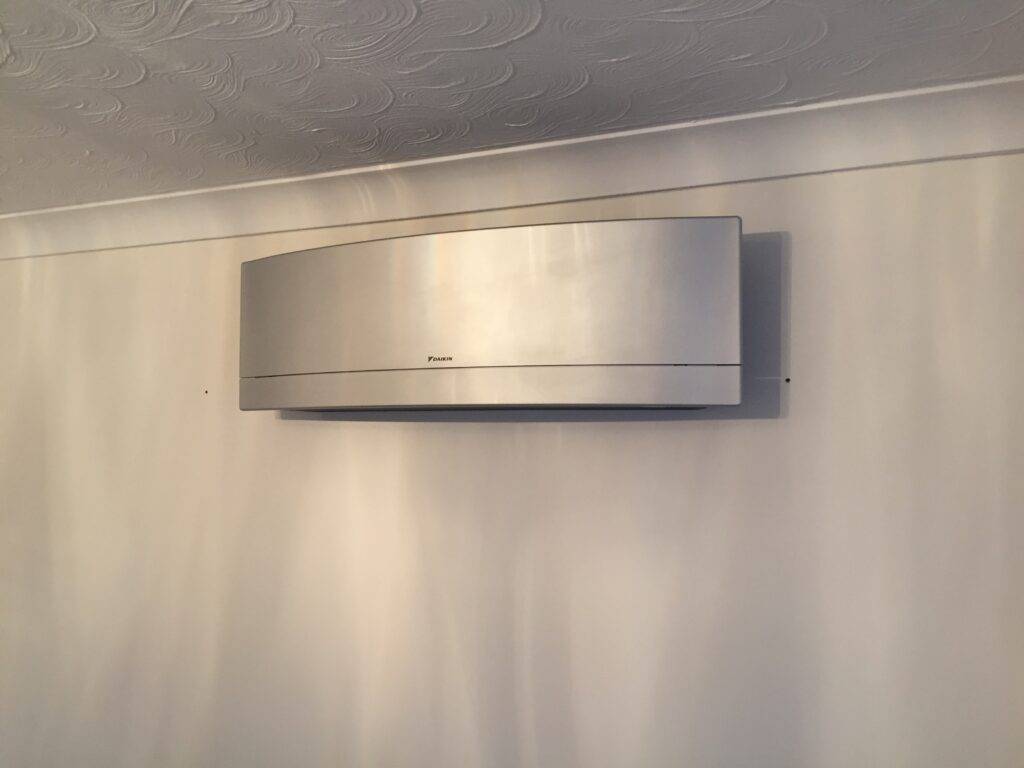Are Heat Pumps More Expensive Than Gas Boilers in the Long Run
Published in 2021, the UK’s Net Zero Strategy is a bold and forward-thinking plan designed to decarbonise all sectors of the economy by 2050. To achieve this, the government is introducing various green energy incentives and innovations that are well worth exploring—especially if you haven't yet!

Table of Contents
The Boiler Upgrade Scheme (BUS)
Understanding the Differences between energy sources

For homeowners looking to make the switch, it is crucial to consider not only the initial costs but also the long-term benefits that come with adopting heat pump technology. The transition represents not just an upgrade in heating systems but a fundamental shift in how we approach energy consumption in our homes. With heating accounting for nearly 40% of the UK’s carbon emissions, embracing heat pumps is a significant step towards reducing our overall carbon footprint and supporting national decarbonisation goals.
Potential increase in property value
In addition to the environmental benefits, the integration of heat pumps can enhance property values, making homes more attractive to eco-conscious buyers. The rising demand for energy-efficient solutions further supports this trend, highlighting the long-term economic advantages of investing in heat pump technology. As the global energy landscape continues to evolve, early adopters of heat pumps may find themselves ahead of the curve, reaping both financial and ecological rewards.
But,
When push comes to shove…
Are heat pumps more expensive to run than gas boilers?
As of writing, Gas costs around 7p per kilowatt-hour (kWh), while electricity hovers around 30p per kWh. On the surface, this makes gas boilers look cheaper to run. For an average household using about 12,000 kWh of energy for heating each year, a gas boiler with 90% efficiency would cost around £930 a year.
But before you do the calculations for what a heat pump might cost, you’ll need to consider efficiency. For every unit of electricity a heat pump consumes, it produces three to four units of heat. This efficiency is measured by something called the Coefficient of Performance (COP). Heat pumps don’t just take in electricity and pump out heat at a one-to-one ratio, rather, a heat pump with a COP of 3 is producing three times as much heat as the electricity it uses.
While electricity might cost more upfront, you’ll need less of it to heat your home when you’re using a heat pump. For that same 12,000 kWh of heat you’d need to warm your house, a heat pump with a COP of 3 would only require 4,000 kWh of electricity. Multiply that by the electricity price of 30p per kWh, and you’re looking at around £1,200 a year in running costs.
Sure, that’s still a bit more than a gas boiler right now, but this is where we need to consider long-term costs again. With gas prices predicted to rise and electricity costs expected to stabilise (thanks to the growing reliance on renewables), the financial equation could shift in favour of heat pumps over time.
Further, with an increasing interest in attaining net zero carbon emissions by 2050 there are many government schemes and incentives that homeowners can make use of to cut down the costs of switching over from a traditional boiler to a more sustainable heat pump immensely.
But how exactly are these heat pumps so sustainable? And how many kinds of heat pumps are on the market at the moment?
What's the difference between different heat pumps?
Heat pumps mainly come in two types: air source heat pumps (ASHP) and ground source heat pumps (GSHP). ASHPs can be further classified into air-to-air and air-to-water heat pumps, along with heat pump water heaters. Each kind of heat pump extracts heat from the air or water to compress and then heat your house. While ground source heat pumps offer a low-carbon alternative and high efficiency, they tend to be significantly more expensive and require more space and a more invasive installation process, so you will have to see what best suits your needs and your household infrastructure.
Wise Green Energyalso offers solar-assisted heat pumps, combining air-source heat pump technology with solar panels. This system efficiently captures solar energy to heat your home while reducing electricity consumption and carbon emissions. Solar-assisted heat pumps are particularly effective in maximising renewable energy use, lowering energy bills, and providing a sustainable heating solution. By using both solar power and heat pump technology, homeowners can benefit from a more environmentally friendly and cost-efficient method of heating their homes.
Ok…
But will a heat pump really fit into your home? How would it work with respect to a radiator?
Wait…
Do heat pumps even need radiators?
This is one of the most common questions people have when considering a switch to heat pumps: will my old radiators still work? And the answer is—it depends.
Traditional gas boilers heat water to higher temperatures (about 70-80°C), which is why those small radiators tucked in the corner of your living room can give off enough heat to warm the whole space. Heat pumps, on the other hand, work at lower temperatures, typically heating water to around 35-50°C. This means that in some cases, your existing radiators might not be big enough or efficient enough to keep your home as warm as you’d like.
That doesn’t mean you’re stuck with chilly rooms, though. Larger radiators or, even better, underfloor heating, work perfectly with heat pumps. In fact, heat pumps are particularly well-suited to underfloor heating systems because they distribute heat more evenly at lower temperatures. So, while you might need to upgrade your radiators if you make the switch, the trade-off is that your heating system will be more efficient in the long run. Plus, it’s worth remembering that a well-insulated home helps massively. With good insulation, even the lower temperature heat from a heat pump can keep things cosy. And you will once again be saving drastically in the long run and might not even require your heat pump to be on for a large chunk of the year, as opposed to if you’d had bad or failing insulation.
Well…what about a water tank?
Do heat pumps require a water tank?
other Factors to consider
Insulation
As mentioned above, good insulation is essential for maximising the efficiency of heat pumps, as it directly influences their performance in maintaining comfortable indoor temperatures. When homes are well insulated, heat pumps can operate more effectively, using less energy to maintain the desired warmth in winter and coolness in summer. This not only enhances the system’s efficiency but also leads to significantly lower energy bills.
Government Incentives
Renewable Energy
Utilising the Smart Export Guarantee (SEG) scheme in conjunction with heat pumps offers significant financial and environmental benefits. By generating renewable energy, such as solar power, and using it to run heat pumps, households can dramatically reduce their energy bills. Furthermore, any surplus electricity can be sold back to the grid through the SEG, providing an additional revenue stream. And who couldn’t do with one of those?
Correct Installation
Like with any energy producing device, the proper installation will ensure that you are using it to its best capacity. With a strong focus on energy efficiency, Wise Green Energyemphasises the importance of high-quality workmanship and ongoing support, guiding customers through the transition to eco-friendly heating systems, all while maintaining transparency and integrity throughout the process. In short, we are here to answer any of your questions and address any concerns and you can contact us herefor the same.
Integration of other renewable energy resources
The integration of solar panels alongside a heat pump can drastically increase the efficiency of your heat pump. It is worth looking at the solar powered heat pumps offered by Wise Green Energy here, to see just how much one can benefit in the long term by transitioning to efficient alternative energy sources working in combination with one another. Solar panels, in turn, can be made more efficient when used alongside a battery. You can read more about all that in our blog post on solar panelshere.
What's the final conclusion
So, while upfront costs for heat pumps may be higher, long-term savings on energy bills and rising gas prices and government incentives like the Boiler Upgrade Scheme help alleviate these burdens. Also consider your heat pumps Coefficient of Productivity number, if you have a heat pump with a COP of 3 and above, you should be on the right track.
Adopting heat pumps is not just a technological upgrade; it signifies a cultural shift towards sustainability. As awareness of our environmental impact grows, embracing such technologies becomes essential for meeting our immediate needs and supporting broader climate goals. The journey to a net-zero future involves fostering a mindset that prioritises sustainability and community engagement. One of the key considerations for homeowners is the understanding of operating costs. While heat pumps may initially seem more expensive, their overall lifecycle cost can be lower than that of gas boilers due to their efficiency. Government policies are increasingly favouring renewable technologies, pushing for the installation of heat pumps as a long-term investment in sustainability. Furthermore, the volatility of gas prices makes the fixed costs associated with electricity a more appealing option for future budgeting.

